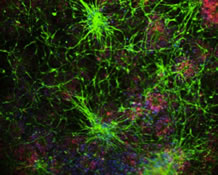Columbia University
Irving Medical Center
Neurological Institute
710 West 168th Street, 3rd floor
(212) 305-1818
About Us
Taub Faculty
My research has focused on three major areas: genetic and environmental risk factors for PD and PD with dementia, the neurological complications of HIV infection, and Huntington’s disease.
In the population-based sample of PD patients in the multi-ethnic community of Washington Heights, we found that relatives of PD patients were over twice as likely as relatives of controls to have PD, suggesting either an increased genetic risk in a small number of families or a smaller risk spread over many families. Relatives of demented patients were three times as likely to have AD as relatives of controls, suggesting a shared susceptibility to AD and PD. These observations lead to a grant funded in 1998 entitled The Genetic Epidemiology of PD (NS36630). In this study we confirmed the increased risk of PD in relatives of PD cases compared to relatives of controls. Relatives of PD cases whose age at onset was <50 and those with an age at onset >50 had a similar increase risk of PD (2-3 fold), suggesting that while the genetic risk factors might differ among PD cases with early and late onset cases, familial risks are similar. We have since examined mutations in several genes associated with PD including parkin, LRRK2, DJ1 and GBA. Our goal is to establish the penetrance and phenotypic profile of both symptomatic and presymptomatic individuals who carry these mutations.
In the early 90s we established the prevalence and incidence of HIV related neurological and neuropsychological impairment in gay men and intravenous drug users and their relationship to immune function. In the mid 90s our emphasis shifted from the early phase of HIV infection to those with more severe cognitive impairment, and a series of clinical trials were initiated to treat HIV cognitive impairment. In the past decade as part of the Northeast AIDS Dementia (NEAD) cohort, we have examined the influence of viral load and immune markers on the prevalence and incidence of neurocognitive impairment and mortality in HIV infected men and women.
I have directed the Huntington’s Disease Society of America Center of Excellence at the New York State Psychiatric Institute since 1991. We currently care for 200 families with Huntington’s disease (HD). We have conducted in collaboration with the Huntington Study Group, a number of NIH or FDA funded clinical trials including coenzyme Q10 and remacemide, riluzole, creatine, phenylbutyrate, and minocyline The newest studies have focused on the at-risk group (PHAROS) and those who are gene positive but presymptomatic (PREDICT-HD). We began a genetic testing program for both symptomatic and presymptomatic individuals in 1999. We now counsel approximately 10-15 presymptomatic individuals per year who complete the testing protocol and an additional 10 who are seen in consultation but choose not to pursue testing, making us one of the busiest centers in the country (www.hdny.org).


